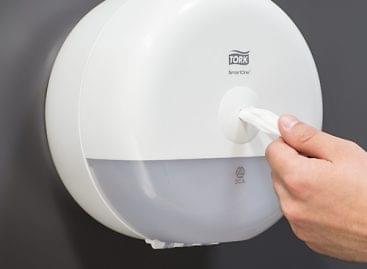Can advertising decoration be sustainable?
Every year, we use around 450 tons of advertising decorations in Hungary that contain a large amount of PVC, and only a fraction of this is recycled. PVC does not decompose, which means that outdoor advertising poses a significant environmental burden. A conference was held in Budapest at the beginning of April, and a new solution was presented at the event to reduce the environmental burden.
 The solution comes from Taya Groups, a Taiwanese company founded half a century ago and with a wide portfolio of everyday products. Recognizing the environmental impact of traditional advertising materials, Taya Groups began researching PVC-free alternatives in 2008, which culminated in the market launch of Kavalan in 2016. Kavalan is a pioneering brand that offers a direct, sustainable replacement for PVC in promotional and decorative applications.
The solution comes from Taya Groups, a Taiwanese company founded half a century ago and with a wide portfolio of everyday products. Recognizing the environmental impact of traditional advertising materials, Taya Groups began researching PVC-free alternatives in 2008, which culminated in the market launch of Kavalan in 2016. Kavalan is a pioneering brand that offers a direct, sustainable replacement for PVC in promotional and decorative applications.
Kavalan’s commitment to environmental responsibility is confirmed by independent audits. Its manufacturing processes and products are rigorously audited and certified by Switzerland-based SGS, and each product undergoes a Life Cycle Assessment (LCA). Kavalan offers a truly environmentally friendly alternative to traditional PVC-based materials, requiring fewer raw materials, minimizing its carbon footprint and significantly reducing CO2 and other pollutant emissions. Its manufacturing process is also resource-efficient, using up to 50% less water than PVC-based products and up to 70% less than textile-based options.
The use of Kavalan has significant potential environmental benefits. It is estimated that if Kavalan were used in place of all PVC promotional decorations across Europe in 2018, the equivalent of four million people’s annual water consumption could be saved.
Related news
Tork at SIRHA Budapest: hygiene, efficiency and sustainability for the HoReCa sector
🎧 Hallgasd a cikket: Lejátszás Szünet Folytatás Leállítás Nyelv: Auto…
Read more >Essity in EU flagship project PROTEUS to develop bio-based super absorbents from algae
🎧 Hallgasd a cikket: Lejátszás Szünet Folytatás Leállítás Nyelv: Auto…
Read more >Related news
Festival buzz at the 60th anniversary EuroShop trade fair
🎧 Hallgasd a cikket: Lejátszás Szünet Folytatás Leállítás Nyelv: Auto…
Read more >No matter how much you save, food and gadgets always take the money
🎧 Hallgasd a cikket: Lejátszás Szünet Folytatás Leállítás Nyelv: Auto…
Read more >







